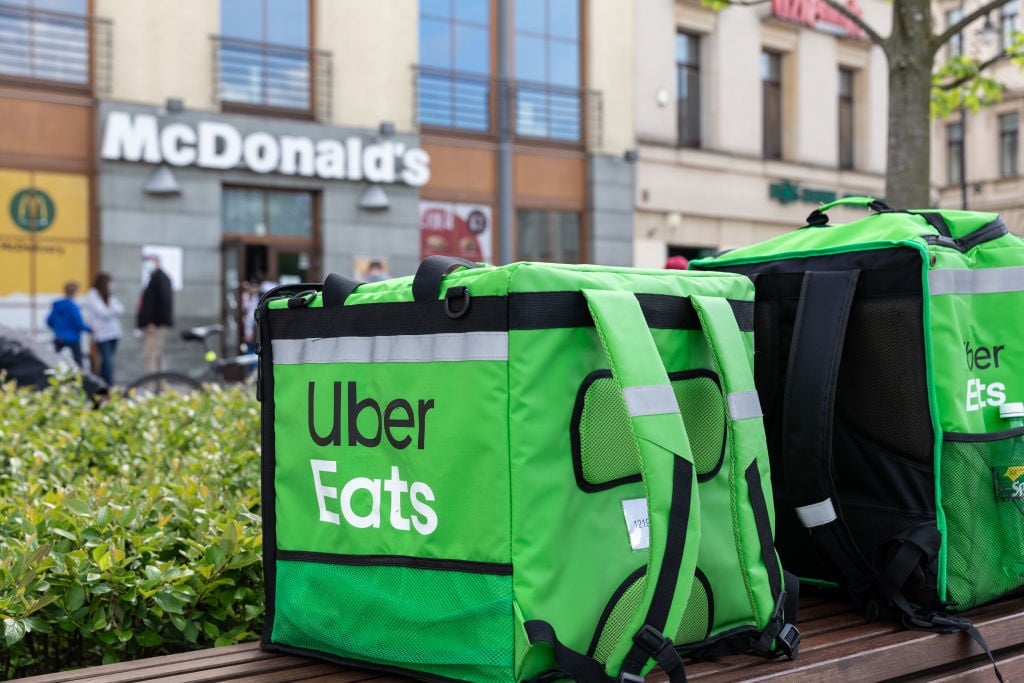
- Uber Eats wants to do more than just service food deliveries and has its eye on becoming a virtual mall.
- "To borrow the phrase of a famous mall in Midrand, the virtual Mall of Africa," explained Nakampe Molewa, the general manager of Uber Eats in Sub-Saharan Africa.
- As part of this mission, Uber Eats is growing its own grocery store which was first launched in August earlier this year.
- Uber Eats Market, which offers groceries and other essentials, is expected to reach 30 locations within the next six months, tripling its current footprint.
Uber Eats has its sights set on becoming the "virtual Mall of Africa", moving away from just food deliveries and now expanding its own dark grocery store.
Uber Eats boomed in South Africa during the height of the Covid-19 pandemic, with order volumes showing triple-digit growth, as users sat at home, either restricted from going out due to lockdown or uneasy about dining in confined restaurants.
The pandemic hurt Uber's e-hailing service and brought its food delivery business into the spotlight, explained Nakampe Molewa, the general manager of Uber Eats in Sub-Saharan Africa, during a media briefing on Wednesday. This massive growth got the company thinking about its next step to carve out a bigger portion of the highly competitive delivery market.
"We then started to think about [whether] food is the only thing we can do on this platform. About a year or 16 months ago, we started to introduce a concept and a team called new verticals and really, their job was to look outside of the food delivery service and [see] if there's anything else that we can do," said Molewa.
Convenience stores, like the ones found at petrol station forecourts, pharmacies, pet shops, clothing, and jewellery were all highlighted during Uber Eats' push to diversify. This vision comes at a time when retailers are dedicating more resources to their own online shops and delivery services. It also coincides with Pick n Pay launching grocery delivery services through Mr D, Uber Eats' main competitor in South Africa.
"We're now starting to look at ourselves as a virtual mall. To borrow the phrase of a famous mall in Midrand, the virtual Mall of Africa. This is where we see the world evolving," said Molewa.
Uber Eats launched its own dark grocery store in August earlier this year. In partnership with the Smart Kitchen Co, this digital dark store allows users to order groceries and essentials. Within a week of its launch, the online store became the number one performing non-restaurant outlet on the Uber Eats app.
By November, Uber Eats Market had grown to include nine locations in Cape Town and Johannesburg. Uber Eats aims to grow the number of locations across South Africa to 30 by April 2023.
"I think of the restaurant business as our food court and I'm trying to grow everything else," said Cikida Gcali-Mabusela, head of grocery and new Verticals for Uber Eats Sub-Saharan Africa, on Wednesday.
"Looking at our virtual mall and understanding the gaps that we need to fill, quick commerce is one of them. Quick commerce is offering grocery and essentials delivery within 15 minutes. And why within 15 minutes? Because we can."
More than 60% of Uber Eats Market shoppers receive their goods in under 15 minutes and user feedback has been extremely positive, according to Gcali-Mabusela.